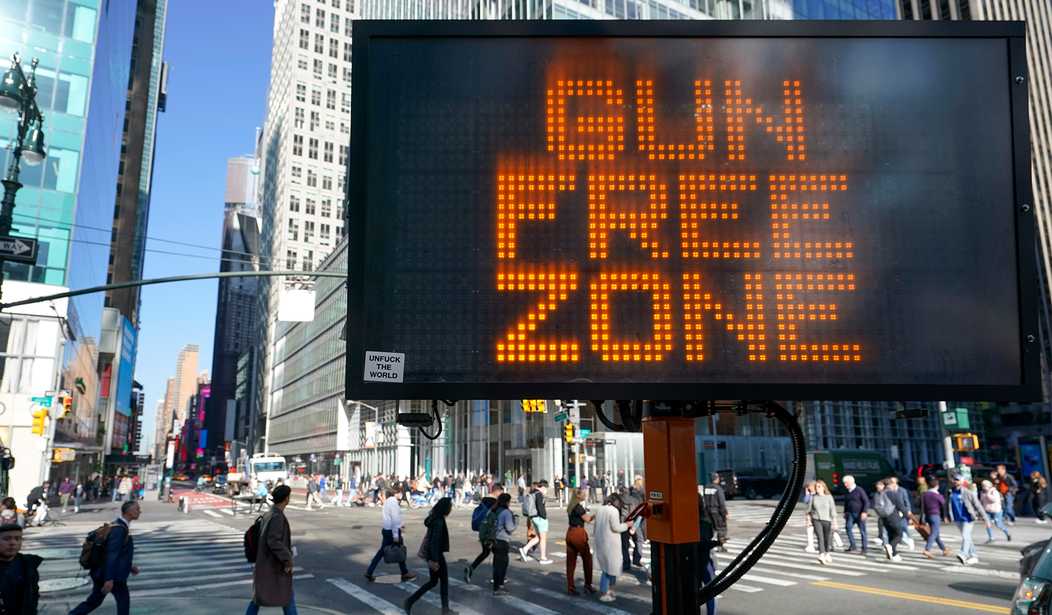Donald Trump made a stunning campaign promise to the nearly 70 million citizens who may now legally carry a concealed handgun (either by permit or state “constitutional carry” law): “I will sign concealed carry reciprocity. Your Second Amendment does not end at the state line.”
The need for interstate reciprocity is acute. As states create and revise reciprocity agreements, an unwieldy patchwork of regulations has made it increasingly difficult for travelers to be certain of their concealed carry rights outside their home state. Entire websites and books are now devoted to deciphering interstate reciprocity laws. Even online reciprocity maps come with a daunting list of exceptions, warnings, and technicalities, and in all cases, the user hopes that the information is based only on current, accurate data.
Interstate travel for tens of millions of concealed carriers has thus become materially compromised. It is often necessary to adjust an itinerary to avoid states that fail to recognize one’s home-state carry rights; this adds an additional layer of complexity and expense to automobile travel. Many people rule out air travel for fear of emergency stops in states that don’t recognize their right to possess a handgun. Not surprisingly, “Many horror stories exist in which the nonresident traveler is arrested on a firearm felony charge for a violation that wouldn’t qualify as [even] a misdemeanor in the traveler’s home state,” notes J. Scott Kappas in his "Traveler’s Guide to the Firearm Laws of the Fifty States."
Recognizing that complex and ever-changing reciprocity laws unreasonably encumber interstate travel for millions of Americans, Congress has attempted to pass reciprocity legislation at least five times. Since its first effort in 2008, the number of citizens who have the right to carry a concealed handgun has increased fivefold. The need for interstate reciprocity is now beyond urgent.
Any forthcoming reciprocity bill must be tempered to withstand challenges both before and after it becomes law. In my view, a concealed carry reciprocity law must satisfy at least four requirements:
1. The statute must entitle an individual holding any state’s concealed carry permit to carry in any other state that issues its own permit, or that allows concealed carry without a permit (29 states have enacted permitless carry). Moreover, individuals who may lawfully carry concealed handguns in their state without a permit must be entitled to carry in any state that issues a permit, or that allows carry without a permit. Washington, D.C., must be included in interstate reciprocity as if it were a state.
2. The statute must not establish national standards or prerequisites for concealed carry permits nor otherwise preempt states’ permit procedures or firearm laws (except as noted in item 1). Neither must the statute establish any registration mechanism or database. In my view, these activities fail to comport with the Tenth Amendment and introduce the risk of future federal control over the availability of concealed carry permits.
3. To foreclose discrimination in states hostile to Second Amendment rights, a concealed carry reciprocity law must contain meaningful penalties for states and their subdivisions that subtly or overtly disfavor lawful permit-holding guests.
4. The text of the statute must be strategically hardened against legal challenges. Congress has the opportunity to thwart constitutional challenges through careful attention to the statute’s language. As I wrote previously on PJ Media, Congress must invoke a decisive reference to Article I’s Commerce Clause. For example, when Congress attempted to pass an interstate reciprocity bill in 2011, the statute strategically included the following: “The Congress finds that preventing the lawful carrying of firearms by individuals who are traveling outside their home state... harms interstate commerce.” That language creates a jurisdictional hook that goes a long way to ensure that the law will pass constitutional muster.
It is remarkable that President Trump included concealed carry reciprocity among his key promises for a second term. He likely sees it as an opportunity to both save lives and restore a fundamental American freedom. He is, of course, right.









Join the conversation as a VIP Member